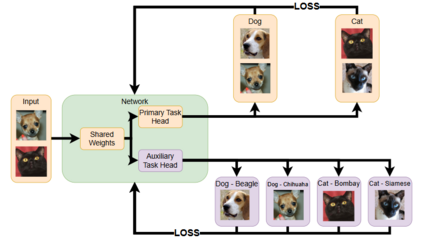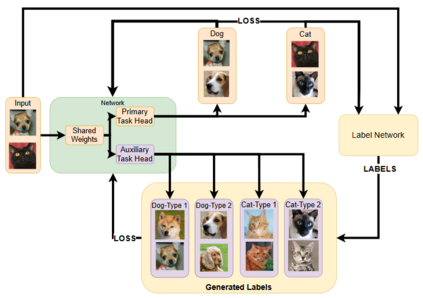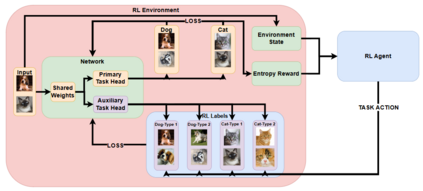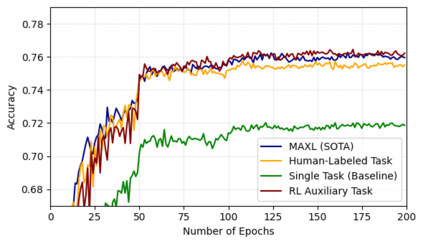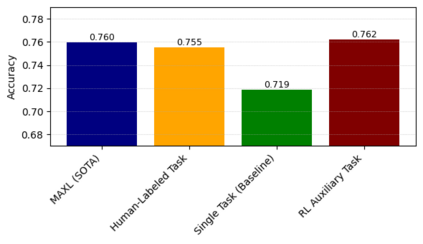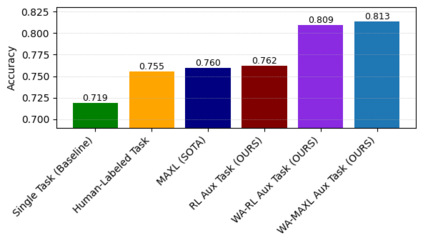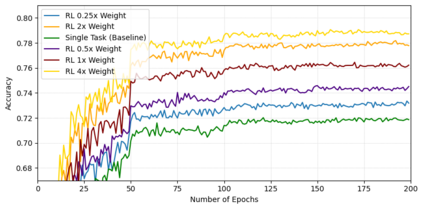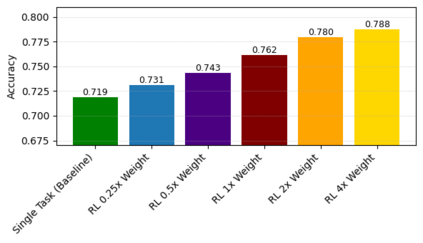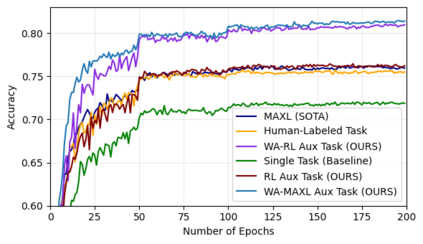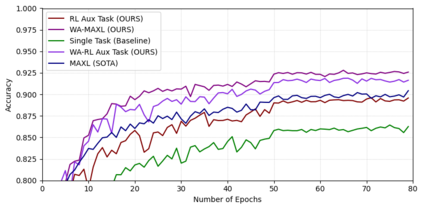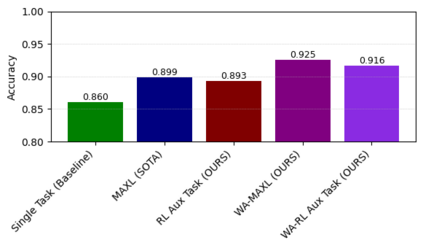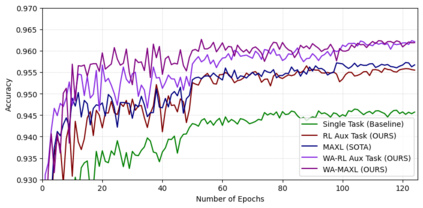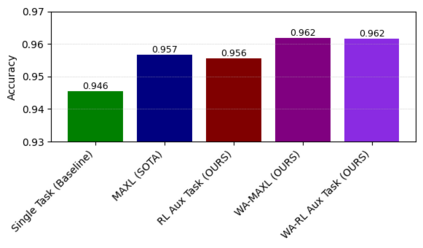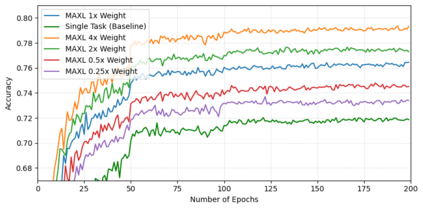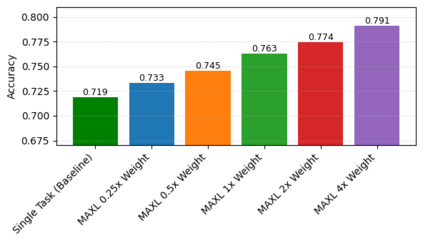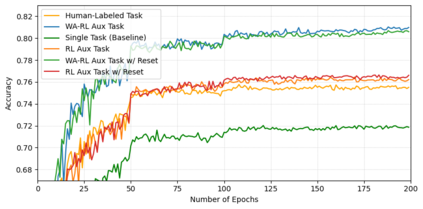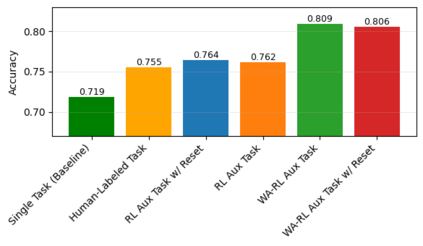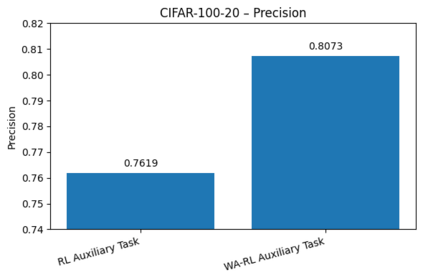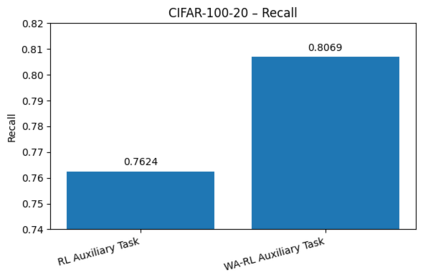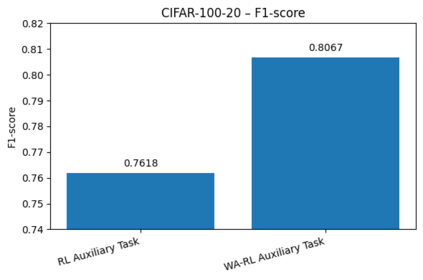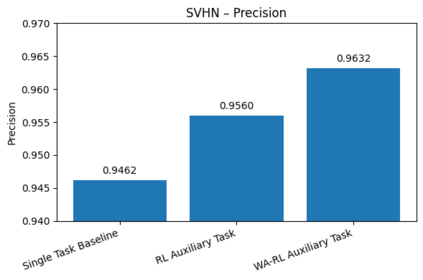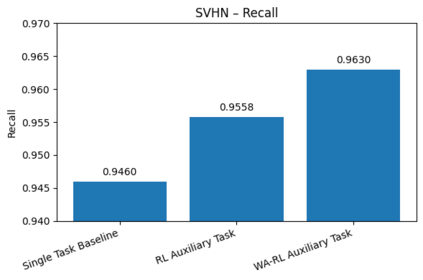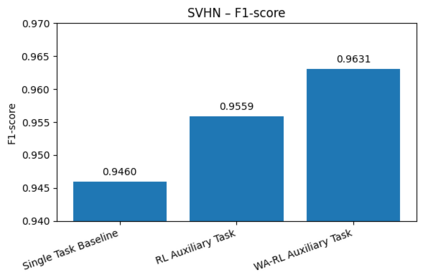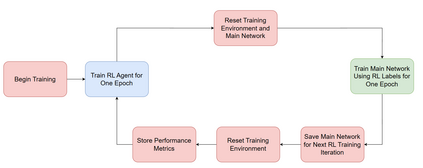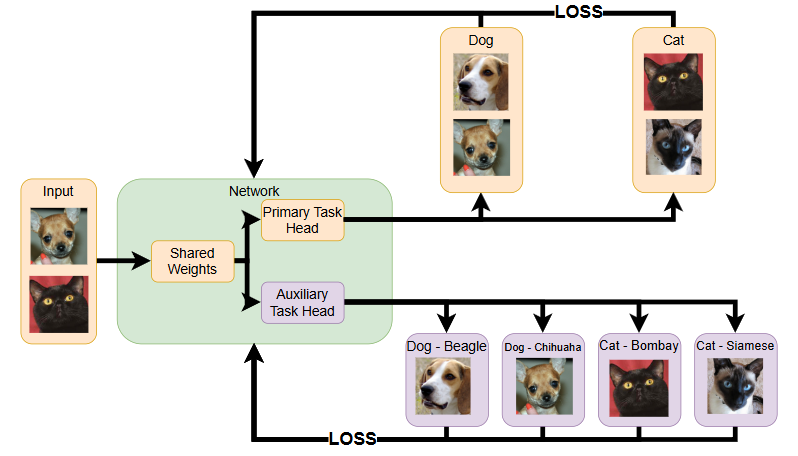Auxiliary Learning (AL) is a form of multi-task learning in which a model trains on auxiliary tasks to boost performance on a primary objective. While AL has improved generalization across domains such as navigation, image classification, and NLP, it often depends on human-labeled auxiliary tasks that are costly to design and require domain expertise. Meta-learning approaches mitigate this by learning to generate auxiliary tasks, but typically rely on gradient based bi-level optimization, adding substantial computational and implementation overhead. We propose RL-AUX, a reinforcement-learning (RL) framework that dynamically creates auxiliary tasks by assigning auxiliary labels to each training example, rewarding the agent whenever its selections improve the performance on the primary task. We also explore learning per-example weights for the auxiliary loss. On CIFAR-100 grouped into 20 superclasses, our RL method outperforms human-labeled auxiliary tasks and matches the performance of a prominent bi-level optimization baseline. We present similarly strong results on other classification datasets. These results suggest RL is a viable path to generating effective auxiliary tasks.
翻译:暂无翻译

